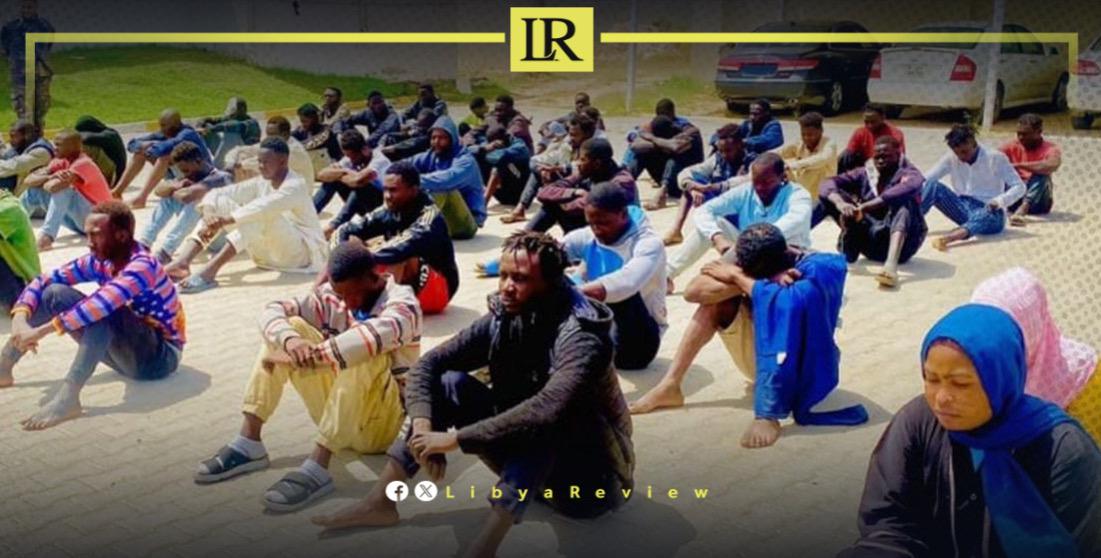The Directorate Support Force in the Libyan Western Region has announced the transfer of 43 irregular migrants of various African nationalities to the Ain Zara shelter, operated by the Anti-Illegal Immigration Agency.
This action followed a raid on a hideout used for assembling irregular migrants in the city of Zuwara. Intelligence indicated that the individuals responsible for this location were planning to organize a migration trip across the Mediterranean to Europe.
Information was gathered and investigations were conducted before the raid was executed, resulting in the detention of several migrants from different African nations. They were then transported to the headquarters of the Directorate Support Force in the Western Region to complete legal procedures and handed over to the competent authorities of the Anti-Illegal Immigration Agency.
The Directorate Support Force in the Western Region emphasized its ongoing efforts to combat illegal migration using all available means, asserting its firm stance against anyone attempting to jeopardize the security and safety of the country.
Notably, Hafez Marsal, the head of the preparatory committee for the African-European Migration Conference, has confirmed that the event will take place on May 25th in Benghazi. The conference is expected to see significant participation from both European and African representatives.
During a press conference, Marsal highlighted the Libyan government’s commitment to addressing the issue of illegal migration. “We have numerous activities aimed at this objective,” Marsal stated. He announced that on April 30th, there would be a seminar involving migration experts and academics to discuss various aspects of migration.
Additionally, Marsal mentioned a scheduled meeting on May 5th for legal experts and human rights lawyers who are involved in revising Libyan laws related to illegal migration. This meeting is part of a broader effort to refine the country’s migration policies.
The series of events will culminate with the major international conference at the end of May, emphasizing Libya’s proactive role in tackling migration issues on a regional scale.
This conference is part of a larger strategy by the Libyan government to foster international cooperation and develop comprehensive solutions to the challenges of illegal migration. The event aims to bring together key stakeholders to forge a unified approach towards migration management and policy-making.
Libya has been in chaos since a NATO-backed uprising toppled longtime leader Muammar Gaddafi in 2011. The county has for years been split between rival administrations.
Libya’s economy, heavily reliant on oil, has suffered due to the ongoing conflict. The instability has led to fluctuations in oil production and prices, impacting the global oil market and Libya’s economy.
The conflict has led to a significant humanitarian crisis in Libya, with thousands of people killed, and many more displaced. Migrants and refugees using Libya as a transit point to Europe have also faced dire conditions.


